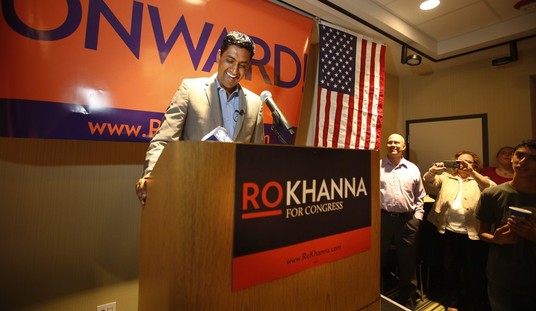This morning’s Gospel reading is John 1:6–8, 19–28:
A man named John was sent from God. He came for testimony, to testify to the light, so that all might believe through him. He was not the light, but came to testify to the light.
And this is the testimony of John. When the Jews from Jerusalem sent priests and Levites to him to ask him, “Who are you?” he admitted and did not deny it, but admitted, “I am not the Christ.” So they asked him, “What are you then? Are you Elijah?” And he said, “I am not.” “Are you the Prophet?” He answered, “No.” So they said to him, “Who are you, so we can give an answer to those who sent us? What do you have to say for yourself?” He said:
“I am the voice of one crying out in the desert, ‘Make straight the way of the Lord,’ as Isaiah the prophet said.”
Some Pharisees were also sent. They asked him, “Why then do you baptize if you are not the Christ or Elijah or the Prophet?” John answered them, “I baptize with water; but there is one among you whom you do not recognize, the one who is coming after me, whose sandal strap I am not worthy to untie.” This happened in Bethany across the Jordan, where John was baptizing.
In some ways, today’s Gospel should be the favorite scriptural passage of bloggers everywhere. The Pharisees indulge in a form of credentialism here that the online opinion journalist community should immediately recognize. One of the first questions all of us had to answer was, “Who are you?” None of us have the imprimatur that John the Baptist had, of course, but it’s certainly a familiar refrain, even if the work that bloggers of all kinds do hardly measures up in importance.
The Pharisees would continue this credentialism with Jesus, too. They recognized that this teacher from Nazareth threatened their monopoly on power within the Judean community and closed their minds and hearts to His message. Rather than hear Him, they conspired to kill Him and succeeded. In each confrontation with Jesus, the Pharisees’ message to Jesus was the same as it was to John: Who are you to teach?
One particular example comes from Matthew 22:34, when Jesus not only answers their challenge but presents them with an unanswerable challenge of his own. After having confounded the Sadducees on a question about resurrection, the Pharisees gave their credentialism one last try. They asked, “Teacher, what is the greatest commandment in the Law?”
Jesus replied, “You must love the Lord your God with all your heart, with all your being, and with all your mind.” He added that the second greatest was, “You must love your neighbor as you love yourself. All the law and the prophets depend on these two commands.”
Jesus then turned the tables on the Pharisees by asking them who they thought the Messiah was. “David’s son,” they answered, at which point Jesus confronted them with Psalm 110, in which David wrote: The Lord said to my lord, ‘Sit at my right side until I turn your enemies into your footstool.’ How can the Messiah be David’s son, Jesus asks, if David calls him “my lord”? The Pharisees had no answer to this challenge, according to Matthew, but they learned not to challenge Jesus’ credentials directly after that. His answer posed their question right back to them: who were they to teach?
Jesus, being both fully human and fully divine, knew exactly by what authority He taught. Today’s Gospel reading speaks more fully to the rest of us, in our lives as evangelizers and as children of God. John the Baptist did not assume authority he had not been granted, nor did he take on titles that could have been easily challenged and discredited by the temple authorities. Who was he to teach? Not anyone with credentials in the community of that time; only someone given an extraordinary gift and the ability to recognize the mission for which it had been given. The truth was not John; John was a witness to the truth, and proclaimed it even without title or permission. He died for that truth, martyred as was Jesus Himself a few years later, as well as almost all of the apostles.
We are given gifts of the spirit as well, and to put them to use in the service of the Lord where possible. However, we can trip ourselves up on the same kind of credentialism that we see in these Gospel readings through doubt. Who are we to teach, to evangelize, to proclaim? We are all sinners, mired in our own failings and struggling to put the Word fully into our hearts and lives. Who am I to write these reflections? I am every bit the sinner as everyone else, with no “title” and no permission to offer my thoughts.*
Who are you to teach? Who are we to speak?
John the Baptist teaches us through his example how to answer those doubts. The answer is not to rely on ourselves — our own cleverness, holiness, real or imagined — but to trust in the Lord who gave us our spiritual gifts in the first place. The Holy Spirit arms us with the gifts we need for our mission, just as He did with John the Baptist, and just as He did with the apostles at Pentecost. The Lord fully understands our weaknesses, our reversals, our hard-heartedness, but He gives us these gifts so that we may reach out to others to help them get past all their weaknesses. We then are strengthened not just by the pursuit of our mission, but also by the missions of others who struggle to use their gifts in their weaknesses too. That is the solidarity of loving one’s neighbor as we love ourselves, and the fruit of loving the Lord above all others.
When we fail to engage in the mission, we weaken the entire structure, even when we do so by focusing on our unworthiness. We are unworthy, which is why we need Christ as our Savior, and why Advent is a season of yearning for Him. But even in our unworthiness, when we are not fit to untie the Lord’s sandal strap, we have a mission in this world, and He has given us the gifts to accomplish a small part of it. All we need to do is recognize our unworthiness for what it is and then to put our trust in Jesus Christ for the rest.
Who are we to speak? We are the stumbling, failing, and persevering children of God and disciples of our Lord, Jesus Christ. That’s all. And that’s enough.
* – Other than from my bosses here at the website, who have been very supportive of this series. And I am very appreciative of their kindness in this and many other things.
The front page image is St. John the Baptist with the Scribes and Pharisees, by Bartolomé Esteban Murillo, ~ 1655. On display at The Fitzwilliam Museum.
“Sunday Reflection” is a regular feature, looking at the specific readings used in today’s Mass in Catholic parishes around the world. The reflection represents only my own point of view, intended to help prepare myself for the Lord’s day and perhaps spark a meaningful discussion. Previous Sunday Reflections from the main page can be found here. For previous Green Room entries, click here.







Join the conversation as a VIP Member